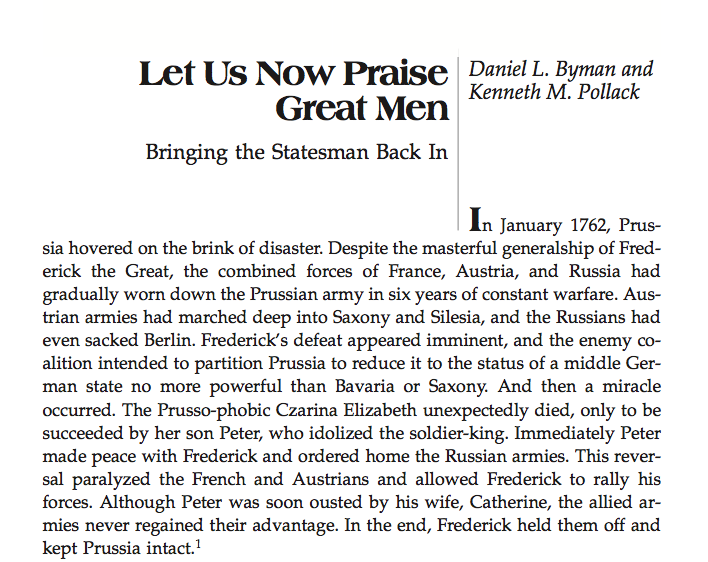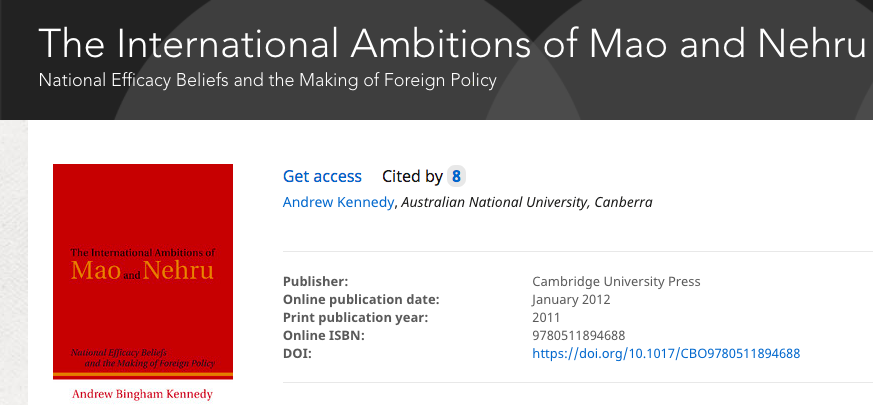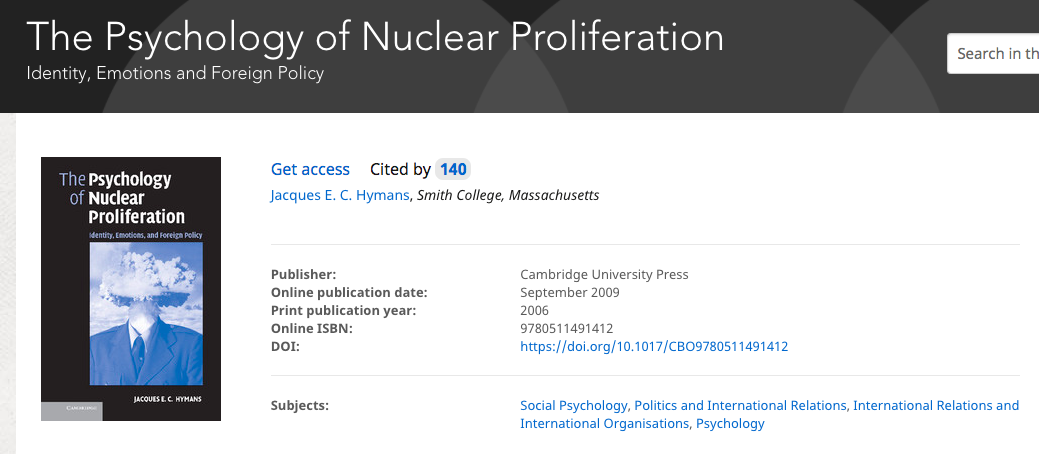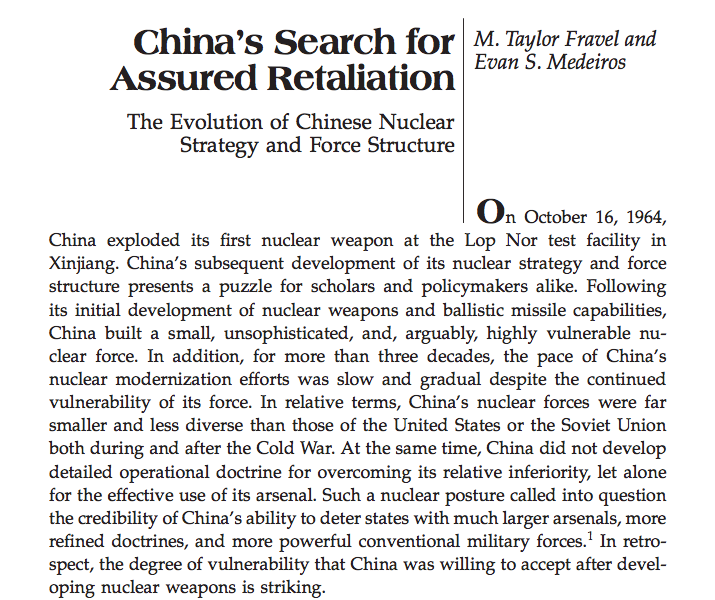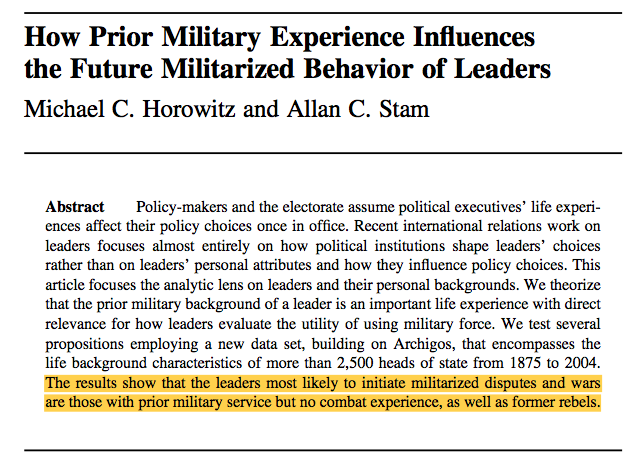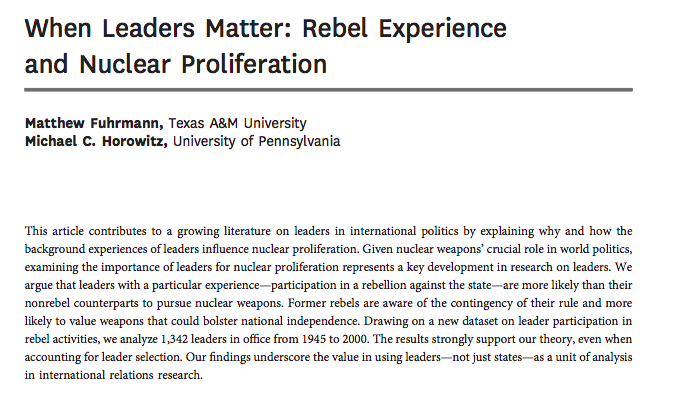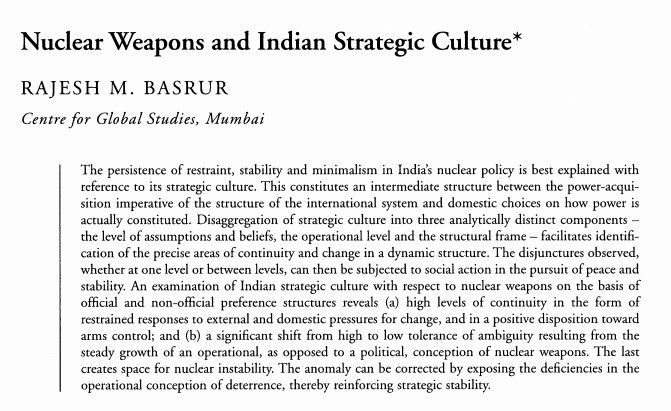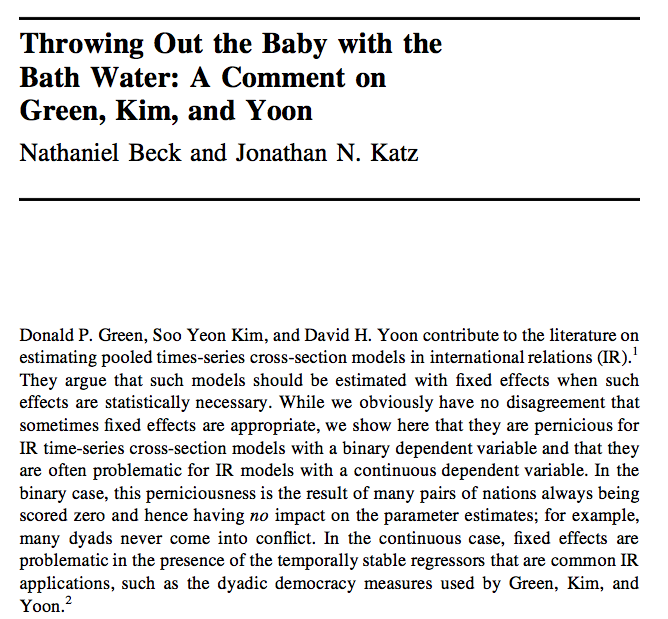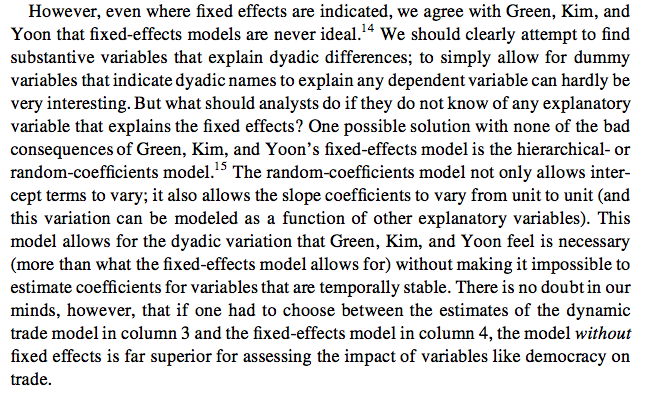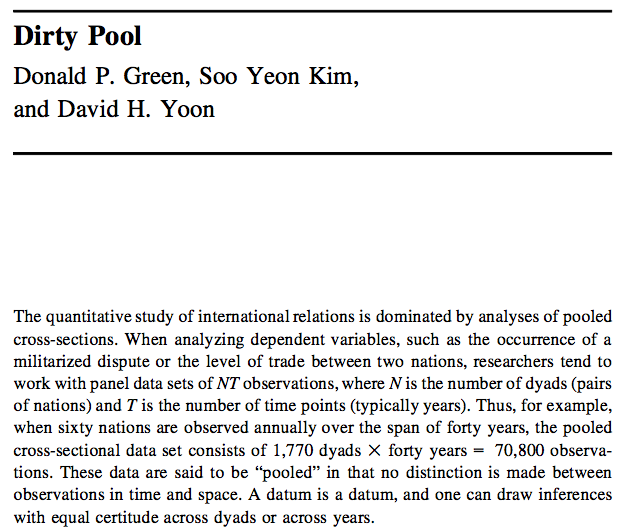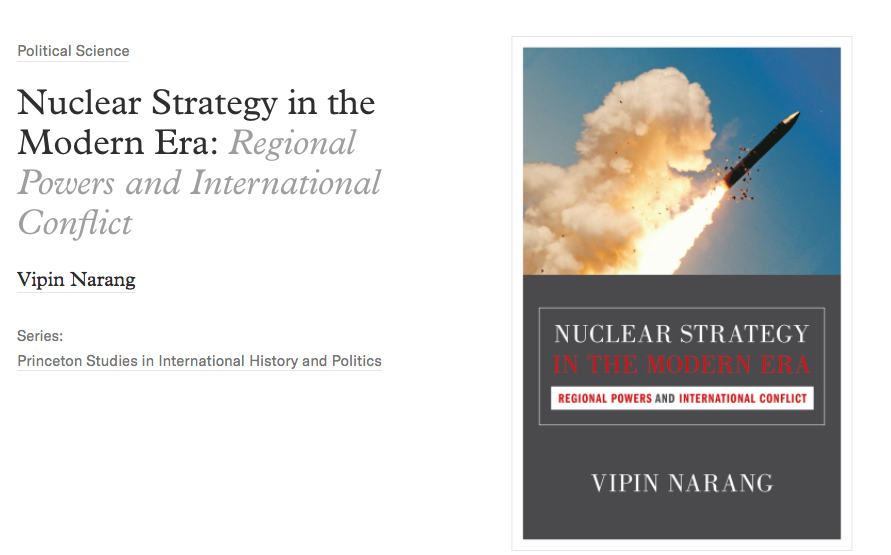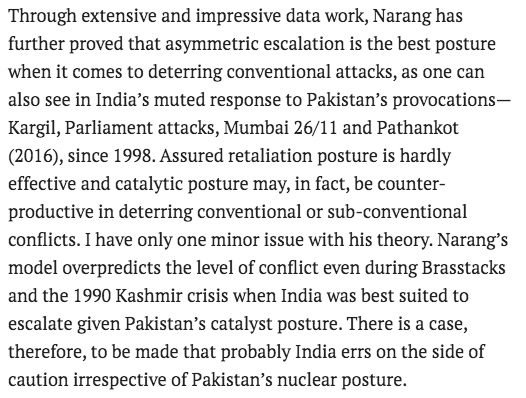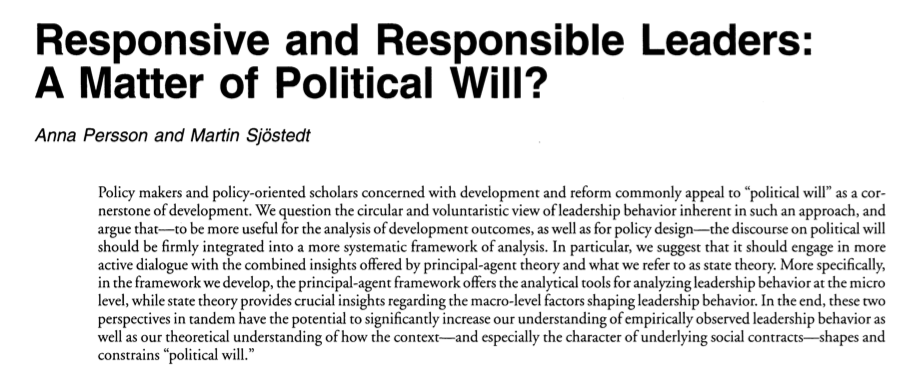Let me do a THREAD that weaves multiple topics together-- leadership, India-China border crisis, strategic culture, and the role of structural factors. Warning: this might become a bit wonk-ish and probably a bit abstract.
This response by @swarajk224 was a trigger in some way for this thread but I will come to it later https://twitter.com/swarajk224/status/1285073817606344704?s=20
For now, let us start with this Byman and Pollack paper where they criticize the tendency of IR scholars to ignore the role of personalities.
For now, let us start with this Byman and Pollack paper where they criticize the tendency of IR scholars to ignore the role of personalities.
However, there have been, by now, many works that emphasize the role of personalities. Byman and Pollack do that in the above paper. Then there are two ways to bring in the role of leaders. First, by suggesting that a leader can (almost) randomly be unique in his/her approach.
At best, there could be psychological reasons for why the leader is unique in his/her approach. For example, Andrew Kennedy argues that Mao and Nehru took bold military and diplomatic decisions but that was because of their "national efficacy beliefs".
Mao's martial efficacy led him to militarily attack both the superpowers, and Nehru's moral efficacy led him to take the Kashmir dispute to the nascent UN Security Council. Similarly, Jacques Hymans says that nuclear proliferation is determined by the leader's ...
... "national identity conception". Only "oppositional nationalist" leaders will take the drastic step of acquiring the nuclear bomb for their countries. There are other similar arguments. Fravel and Medeiros attribute slow development of Chinese nuclear forces to...
... the beliefs of Mao and Deng on the role of nuclear weapons in China's security. The second type of arguments attribute the effect to not simply the leader, but to a specific prior life experience of the leader. For example, Horowitz and Stam argue that prior...
... military service and combat experience can tell us something about the tendency to initiate military disputes. Similarly, Fuhrmann and Horowitz suggest that leaders with prior rebel experience are more likely to pursue nuclear weapons.
So, it is clear that many people do believe that leaders matter despite all the arguments about structural factors and structural factors alone being the most significant determinant in IR. If leaders matter, then can we simply use a leader or his/her psychological makeup...
... or beliefs or intent or prior experience as a causal variable? If we begin to allow this, then there could be as many theories as there are behaviours. The whole enterprise of theorizing would be of little value if we begin to call each leader unique in some way.
This is my problem with explaining Modi's non-use of military force with China on LAC by his "political will" or "intent" (Remember @swarajk224's tweet?). Now, let me take a detour. Probably, it is not just Modi. Probably, Indian leaders have all been too reluctant to use force.
This seems more like a strategic culture argument. The allure of strategic culture as a causal variable is that while talking of culture-- an anathema to realists-- it carries a pretense of being a structural variable too. It is strategic, after all.
For example, Rajesh Basrur argues that India's nuclear posture and forces can be best understood by its strategic culture. (Pardon me for frequent reference to nuclear literature, it is just because I read more of nuclear-related stuff than others within security studies.)
I understand strategic culture as a "fixed effect". It basically tries to explain what can't be explained by other known & measurable variables. But that should not be an excuse for not trying to find those hidden, difficult-to-measure variables. This response by Beck and Katz...
to a paper by Green, Kim, and Yoon is pretty interesting. Especially read the 2nd screenshot of the previous tweet to understand where my thinking matches with that of Beck and Katz. This is not to say that strategic culture doesn't explain Indian leaders' behavior.
One of my conclusions from Vipin Narang's book (specifically the empirical part of the book) is that India generally errs on the side of caution in military confrontations. The 2nd screenshot is from an old article of mine ( https://www.livemint.com/Opinion/O0WpUHq56yKton30K7MgrN/Deterring-the-next-2611.html)
But strategic culture is very poor in explaining variances within the same culture. The same India did escalate militarily in 1971. It went and grabbed Siachen in 1984. The same Nehru who is criticized on Kashmir and China took military action to evacuate Portuguese from Goa.
So, considerable internal variance means that strategic culture is not an adequate causal variable. Political will cannot be the one-size-fits-all answer. Persson and Sjostedtt have done a great critique of this lazy resorting to "political will" as a causal variable.
They ask us to look for structural variables that actually shape and constrain the political will. While their paper is on economic development, such an approach will be useful for security studies scholar too. While there can be some part of political will that is "fixed",...
some part has to be shaped/constrained by structural factors. This will prevent uncontrolled proliferation of theories, lazy recourse to fixed effects, and will lead to better understanding of social science phenomena. Does that mean I know how to explain...
...Modi's (non-)actions on LAC? No. Absolutely no.
See, I took a lot of your time and did not even answer the most relevant strategic question of the moment. Welcome to social science! <END>
See, I took a lot of your time and did not even answer the most relevant strategic question of the moment. Welcome to social science! <END>

 Read on Twitter
Read on Twitter